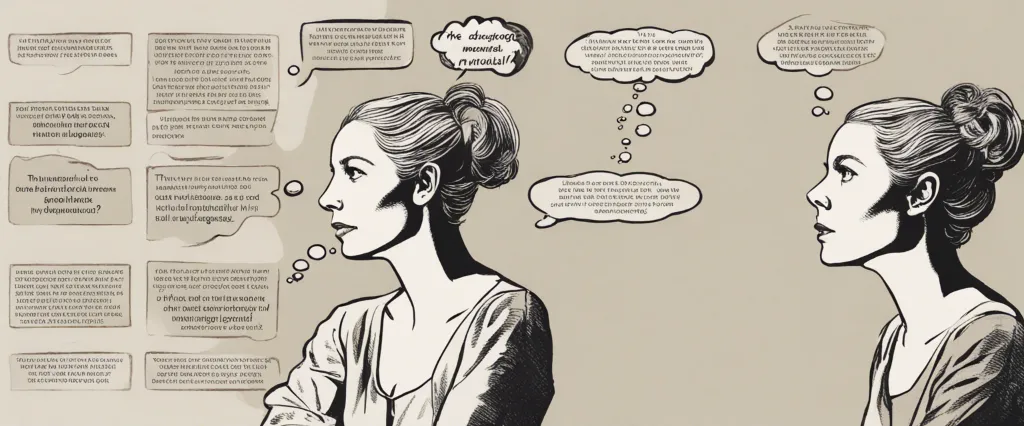——Wordslut by Amanda Montell & You Cant Be Neutral on a Moving Train by Howard Zinn

In the vast realm of literature, books have the incredible power to shape our perspectives, challenge societal norms, and guide us towards new realms of understanding. Within this diverse landscape, it is fascinating to explore two distinct works that engage with different but equally important aspects of our human experience. In this comparative study, we delve into the depths of gender and language with “Wordslut” by Amanda Montell, and embark on a journey through history and social justice with “You Can’t Be Neutral on a Moving Train” by Howard Zinn.
“Wordslut” dares to challenge the limitations of language, focusing specifically on how women are perceived and portrayed in our verbal landscape. Amanda Montell, a linguist and passionate advocate for gender equality, delves into the nuances of linguistic sexism and how it permeates our everyday lives. Through an expert blend of research and personal anecdotes, Montell unveils the power dynamics that have long governed language, providing readers with a fresh perspective on the subtle, yet significant ways in which words shape our thoughts, actions, and societal structures. With a sharp wit and insightful analysis, she unpacks the loaded meanings behind popular words and phrases, illuminating the deep-seated biases that often go unnoticed.
On the other hand, “You Can’t Be Neutral on a Moving Train” takes us on a riveting historical journey, guided by the indomitable spirit of Howard Zinn. This renowned historian and activist offers a captivating blend of memoir and historical analysis, reflecting on his personal experiences and the transformative role of activism in shaping the world. Zinn’s work compels us to confront the oft-ignored narratives that underpin the status quo. He challenges us to question the dominant historical narratives that marginalize the struggles of the oppressed. By championing the voices of the marginalized, Zinn urges readers to reconsider the interpretation of history, advocating for a more inclusive and immersive understanding of our collective past.
As we embark on this comparative study, we will examine the stark contrasts and surprising parallels that these two books offer. While Montell critiques the intricacies of language, Zinn sheds light on the power dynamics entrenched in our historical narratives. Yet, both works ultimately call for a greater awareness, dismantling the oppressive systems that stifle progress and urging readers to become active participants in forging a more inclusive and equitable society.
In exploring the interplay between “Wordslut” and “You Can’t Be Neutral on a Moving Train,” we embark on a profound examination of language, history, and our shared humanity. By engaging with these two monumental works, we hope to gain a deeper understanding of the multifaceted nature of discrimination, injustice, and the transformative power of words and action.
Brief Summary of Two Books
Wordslut by Amanda Montell
In this engaging and accessible guide, Montell presents a feminist analysis of language, dissecting how the words we use not only reflect but also reinforce societal norms and power imbalances. She begins by discussing the ways in which language has perpetuated stereotypes and inequality, from the restrictive labels placed on women to the entrenched biases in common phrases. Montell exposes the overt and subtle ways in which language has been used to justify and maintain patriarchal systems.
Throughout the book, Montell urges readers to take control of language and use it as a tool for empowerment. She advocates for redefining and reclaiming pejorative terms traditionally used to belittle women, encouraging readers to embrace their true linguistic power. Montell also emphasizes the importance of inclusive language, examining the harmful impact of gendered pronouns and providing alternatives that challenge the gender binary.
Wordslut is not only an exploration of language but also a call to action. Montell highlights the role of linguistic activism and provides practical tips on how to challenge oppressive language in everyday conversations, writing, and social media. She introduces the concept of “word warriors” and celebrates individuals who have reshaped our vocabulary to be more inclusive and egalitarian.
In conclusion, Wordslut by Amanda Montell is an engaging and enlightening book that illuminates the significant influence of language on our perceptions of gender and offers practical strategies for reclaiming and reinventing the English language. It encourages readers to become conscious of their words and harness their power to challenge societal norms and promote equality.
You Cant Be Neutral on a Moving Train by Howard Zinn
“You Can’t Be Neutral on a Moving Train” is a memoir written by Howard Zinn, a prominent political activist and historian. In the book, Zinn describes his personal experiences and reflections on various social justice movements he was involved in throughout his life.
Zinn begins by recounting his early days as a bombardier in World War II, an experience that shaped his later views against war and imperialism. He discusses his involvement in the civil rights movement during the 1960s, portraying the injustice and brutality faced by African Americans and his own role in challenging racial inequality.
The author also delves into his opposition to the Vietnam War, highlighting the widespread anti-war sentiment during that period. Zinn’s activism during this time included organizing protests, participating in draft resistance, and writing extensively against the war’s impact on both American society and the Vietnamese people.
Moreover, Zinn explores his views on feminism and his support for women’s rights, including his participation in the movement for reproductive rights. He discusses various other social justice causes he championed, such as workers’ rights, environmentalism, and his critique of American foreign policy.
Throughout the book, Zinn argues that remaining neutral in the face of injustice is equivalent to supporting the status quo. He emphasizes the importance of actively engaging and resisting oppressive systems, encouraging readers to take a stand and participate in the struggle for a more just society.
“You Can’t Be Neutral on a Moving Train” serves as Zinn’s personal testament to his lifelong commitment to activism and his belief in the power of ordinary people to effect change. It is a call to action and a reminder that neutrality is not an option when confronted with social injustice.
Comparison between Two Books

Similarities in Social Change
Both “Wordslut” by Amanda Montell and “You Can’t Be Neutral on a Moving Train” by Howard Zinn discuss the concept of social change and advocate for the need to challenge societal norms in order to bring about a more equitable and just society. While these books differ in terms of their focus (one on language and feminism, the other on activism and history), they share several similarities in their approach to social change.
1. Challenging Power Structures: Both authors emphasize the importance of questioning traditional power structures and social hierarchies. Montell critiques language and its historical use to reinforce gender inequalities, while Zinn explores the history of American society, highlighting the marginalized voices and experiences often omitted from mainstream narratives. By shedding light on these power structures, both books encourage readers to reexamine their own assumptions and to work towards dismantling oppressive systems.
2. Empowering Marginalized Voices: Both books prioritize amplifying the voices and experiences of marginalized communities that have historically been silenced or diminished. Montell explores the feminist movement and the importance of using language to reclaim power, while Zinn’s work focuses on highlighting the stories and struggles of various marginalized groups throughout history. By centering these voices, the authors aim to give agency and recognition to those who have been systematically oppressed, fostering empathy and understanding among readers.
3. Advocacy for Active Participation: Both authors advocate for engagement and active participation in bringing about social change rather than remaining neutral or passive. Montell encourages readers to interrogate their own language use and actively challenge oppressive linguistic norms, while Zinn implores individuals to engage in activism and dissent against injustices in a broader societal context. By rejecting neutrality and advocating for proactive involvement, both books emphasize the transformative power of individual actions and collective efforts.
4. Acknowledgment of Historical Context: Both books stress the importance of understanding historical context in order to comprehend the current state of social issues. Montell delves into the historical roots of linguistic inequalities, while Zinn provides a historical analysis of various social movements and moments of resistance. By contextualizing the present within the broader historical narrative, both authors encourage readers to recognize and learn from past struggles, ultimately informing their approach to social change in the present.
In summary, “Wordslut” and “You Can’t Be Neutral on a Moving Train” share similarities in their elevation of marginalized voices, their critique of power structures, their advocacy for active participation, and their acknowledgment of historical context. These common themes underpin their respective discussions on social change, providing readers with insights and tools to challenge and transform existing social norms and power dynamics.
Divergences in Social Change
Wordslut by Amanda Montell and You Can’t Be Neutral on a Moving Train by Howard Zinn are both impactful books that delve into important topics related to social change. While these books differ in their approach and subject matter, they express a common goal: advocating for a more inclusive and just society.
One notable divergence between these books lies in their focus and perspective. Wordslut mainly explores the ways in which language shapes our understanding of gender, power dynamics, and inequality. Montell examines the societal impact of language, offering insightful analysis on the gendered implications of words and phrases. On the other hand, You Can’t Be Neutral on a Moving Train takes a broader historical approach, discussing the need for active opposition to injustices and the role of individuals in affecting social change.
Another divergence can be found in the time frames and contexts in which these books were written. Wordslut, published in 2019, reflects a contemporary perspective on language and its relation to gender and power. Montell draws from current social movements and trends, such as the #MeToo movement and discussions around inclusivity and intersectionality. In contrast, You Can’t Be Neutral on a Moving Train was first published in 1994 and is based on Howard Zinn’s experiences as a historian and activist from the mid-20th century onwards. This book explores historical events, such as the Civil Rights Movement, the Vietnam War, and labor struggles, offering a retrospective view of social change and activism during those periods.
Finally, the tone and style of these two books contribute to their divergence. Wordslut adopts a more conversational and accessible tone, employing humor and personal anecdotes to engage readers. Montell’s approach invites readers to join her in a journey of exploration, making social change less intimidating and more relatable. Conversely, You Can’t Be Neutral on a Moving Train takes a more serious and analytical tone. Zinn’s work is grounded in historical research and analysis, with a focus on the importance of collective action and dissent in the face of injustice.
In conclusion, while Wordslut and You Can’t Be Neutral on a Moving Train differ in focus, perspective, time frame, and style, they converge in their objective of advocating for social change. Montell aims to dismantle oppressive language structures, promoting inclusivity and equality, while Zinn reflects on historical events and the power of activism. Both books contribute to the discourse on creating a more just and equitable society.

Conclusion
Both “Wordslut” by Amanda Montell and “You Can’t Be Neutral on a Moving Train” by Howard Zinn are highly regarded books in their respective fields. The choice between the two depends on your personal interests and the subject matter you find more compelling.
If you have an interest in language and feminism, “Wordslut” is an excellent choice. It explores the power dynamics of language and how it influences our perceptions of gender. Amanda Montell delves into the history, cultural implications, and sociolinguistics of gendered language, making it an engaging and thought-provoking read.
On the other hand, “You Can’t Be Neutral on a Moving Train” is a powerful memoir by Howard Zinn, a historian and social activist. This book provides insights into Zinn’s own experiences and his perspective on activism and social justice. Zinn reflects on his involvement in various movements, including civil rights and anti-war protests, and encourages readers to critically analyze their own role in creating change.
Ultimately, the choice between these two books depends on your interests and what you hope to gain from your reading experience.



